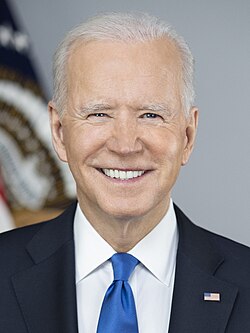| |||||||||||||||||||||||
Non-binding preference poll | |||||||||||||||||||||||
|---|---|---|---|---|---|---|---|---|---|---|---|---|---|---|---|---|---|---|---|---|---|---|---|
| |||||||||||||||||||||||
 Results by village Biden 50–60% 60–70% | |||||||||||||||||||||||
| Elections in Guam |
|---|
 |
The 2020 United States presidential straw poll in Guam was held on November 3, 2020. Guam is a territory and not a state. Thus, it is ineligible to elect members of the Electoral College, who would then in turn cast direct electoral votes for president and for vice president. To draw attention to this fact, the territory conducts a non-binding presidential straw poll during the general election as if they did elect members to the Electoral College. [1]
Contents
The territory still participated in the U.S. presidential caucuses and primaries like the other states and territories. [2]
Democratic Party nominee Joe Biden won the poll with 55% of the vote.

